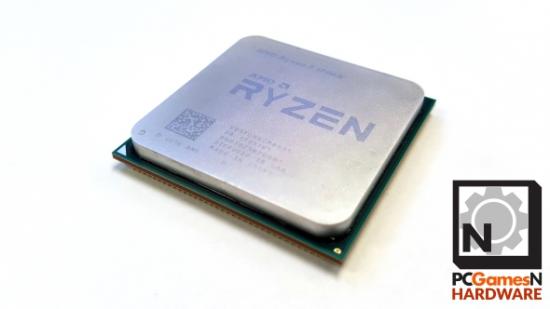The Ryzen 7 1700X is around $60 cheaper than its flagship Ryzen 7 1800X stablemate, yet offers achingly similar performance. So it ought to be the perfect example of AMD’s new Zen architecture, offering massive multi-threaded grunt for chump change, right? Well, that depends on whether you’re happy to keep on overclocking a bargain-priced Ryzen 7 1700 instead…
When it comes to gaming these are the best CPUs for your rig.
Really though the $300(£258) 1700X actually makes me wonder more why AMD released the 1800X in the first place. It seems to me all it has to offer over this more wallet-friendly version is a 200MHz clockspeed bump that can be ironed out with a simple BIOS tweak.
There was almost no need for them to release the eight-core Ryzen chips with three only-very-slightly-different versions when historically AMD have released new components in pairs. AMD’s general practice for the graphics side of the business has been to create a brand new GPU and then create two products from that one slice of silicon. They create one top-end with all the beans and then another slightly cheaper, slightly cut-down version. And it’s a tactic which has served them well. It’s also how they’re stacking the Ryzen 5 release too.
But then the straight 65W Ryzen 7 1700 has also got itself some impressive CPU chops too, which makes choosing between that and this 1700X rather tricksy…
Hit the jump links to leap to the section you desire most.
AMD Ryzen 7 1700X specs
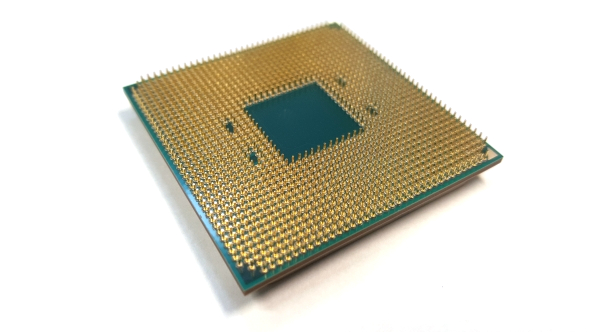
The 1700X has essentially the same dual-CCX design as the other two octa-core Ryzen CPUs. It’s also utilising the same 14nm production process as the others and slots neatly into the same AM4 motherboard platform, as all good AMD chips should from now on. Right, AMD? Right?
We’ve already covered the Zen architecture in our initial Ryzen 7 1800X review so if you want some extra details check that out. But if you can’t really be bothered, suffice to say AMD have worked some silicon wonders to create such affordable eight-core processors.
The middle-child of the octa-core range still comes with simultaneous multi-threading (SMT) enabled, so you get eight full cores, splitting out into 16 logical cores for all that parallel computational grunt. You also still get the full 20MB complement of aggregated L3 and L2 cache and the same 20 lanes of PCIe 3.0 throughput. Both this and the flagship Ryzen are also sporting 95W TDPs too.
Where things differ is really only in the stock clockspeed of the Ryzen 7 1700X. The 1800X runs at 3.6GHz base and 4GHz turbo/boost, while the 1700X is 200MHz behind at 3.4GHz and 3.8GHz respectively.
Well, that and the price…
AMD Ryzen 7 1700X benchmarks


AMD Ryzen 7 1700X performance
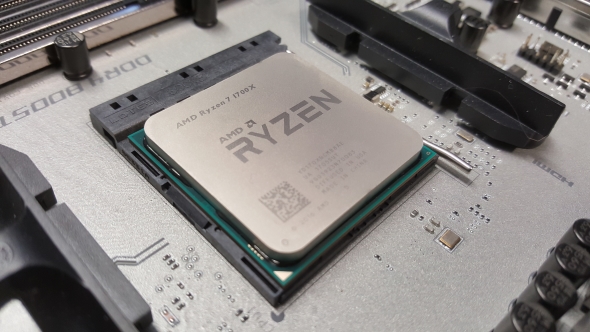
Once more it’s the straight CPU performance that makes the Ryzen 7 1700X really stand out, and most especially with its eight-core multi-threaded chops. At stock clocks it inevitably benchmarks behind the quicker 1800X, but still well out ahead of either the eight-core or six-core Intel chips we’ve tested in comparison. Only the 10-core Intel Core i9 7900Xis able to top either the eight core Ryzens in CPU tests, and that’s a far more expensive chip. That’s true in both the Cinebench rendering and X264 encoding tests.
The comparison with the Core i7 8700K is arguably more important as it’s closer in price to the Ryzen 7 1700X, but in multi-threaded apps the extra two cores and four threads of the AMD chip give it a decent performance lead.
Obviously the memory bandwidth is off the Intel pace, thanks to the AM4 platform’s struggle at managing to fill its four DIMM slots with high speed memory and the fact it’s only capable of operating in dual-channel mode as opposed to the X99 setup’s quad-channel memory support.
Like its other Ryzen brethren it’s also a little flaky on the storage performance too. It’s possibly down to the link between memory speed, the Infinity Fabric and the PCIe bus speed, but the 4K random performance on our speedy Samsung 960 EVO NVMe drive is sadly lacking in comparison to either the Intel X99 or Z270 platforms.
And then, of course, we come to gaming. Like the R7 1800X, though more so because of the slower clockspeeds, the single-threaded performance of the 1700X is off the pace of Intel Core architecture. Over the last year gaming performance has evened out for Ryzen, meaning that the AMD chips really aren’t that far behind Intel.
Against the almost similarly-priced 8700K the 1700X is just under 23% slower in our Civ VI and Total War benchmarks, but is a touch quicker in GTA V and almost has parity in our DX 12 Tomb Raider and Vulkan Doom tests. The Hitman test, though, does show that sometimes CPU power doesn’t amount to a hill of beans to some game engines – they’re all about the GPU and nothing else, but there is almost performance parity across the board.
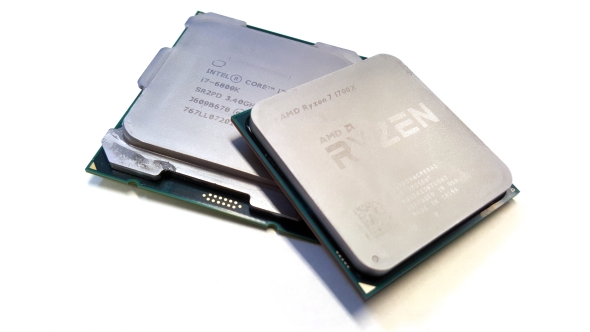
Of course my benchmarks are designed to highlight relative CPU performance in gaming, weighting responsibility more on the processor than the graphics card by testing at 1080p where it shouldn’t be over-stressing the GPU. You can, obviously, hide those performance differences by running games at higher resolutions, where the GPU becomes almost solely responsible for your frame rate. But that’s kinda like when you hide a lump of human excrement under your insufferable housemate’s butter, you know, the one who puts their own labels on everything in the fridge. They don’t know anything about the shit under the surface until it’s too late. Only this time I’d be knowingly hiding poo in my own benchmarking butter.
But almost more interesting than the Intel vs. AMD gaming debate is the relative performance of the Ryzen octa-core chips themselves. There is almost nothing between the Ryzen 7 1700X and the 1800X, except in the solitary Vulkan-based Doom benchmark. The slight drop in clockspeed has really done nothing to differentiate the two CPUs.
It’s the same story with the overclocking performance, despite the slightly higher maximum overclock we squeezed out of our 1800X sample. The only issue here is that this is where the cheaper 65W Ryzen 7 1700 starts to make its presence felt. Our straight 1700 couldn’t quite stretch to 4GHz stably with basic overclocking, but it was still very close in performance terms to both the 1700X and the 1800X. I’m starting to wonder what those XFR-based ‘X’ suffixes are really worth.
- Check out Amazon US, Newegg, Amazon UK and Overclockers for pricing.
AMD Ryzen 7 1700X verdict
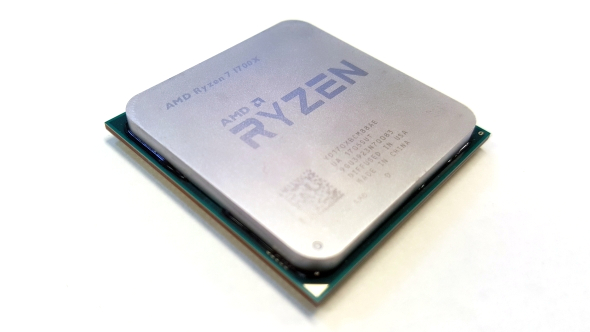
Before I started testing this chip I was half-expecting to call out the Ryzen 7 1700X as the unwanted middle child of AMD’s new octa-core range, but the more I think about it it’s the 1800X that starts to look essentially irrelevant.
The 1700X is a genuinely impressive chip, with serious multi-threaded performance and a hefty price delta between it and the flagship Ryzen processor. Its gaming performance is still behind the Intel competition, but when it’s almost the same price as the i7 6800K picking between the two becomes a lot tougher.
You really are then purely trading multi-threaded performance against gaming, but if you’re into both then suddenly the Ryzen starts to look much more tempting. I’ll wager the number of gamers who indulge in a little light 3D rendering or encoding while they play Mass Effect Andromeda is pretty small, likewise the number of pro-streamers who absolutely must use CPU-based encoding rather than either the Nvidia or AMD GPU streaming is probably relatively small too. But with the Ryzen chip you’ll be able to chew through whatever CPU-intensive tasks you’re waiting on much quicker than the Intel and get back to gaming without anything else chasing system resources.
The sticking point for everyone else though comes with the Ryzen 7 1700. With a simple wave of the overclocking wand you can push the much cheaper chip up to almost identical levels of processing and gaming performance as either the 1800X or 1700X. If I were in the market for a new high core count CPU I’d probably be looking at the non-X chip instead, but then I’m happy to risk running my silicon overclocked under water-cooling. But if you’re not, the Ryzen 7 1700X is a great little chip for content creators who like to game on the side.
- Check outAmazon US,Newegg,Amazon UKandOverclockersfor pricing.
